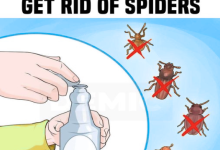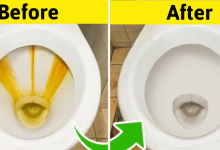Let’s face it: nobody wants to earn a gold medal in housework. Examining your approach to these duties, on the other hand, may reveal that you’ve been using the incorrect approaches, resulting in wasted time, effort, and money. Here are some frequent home maintenance missteps to avoid if you want to keep your home clean and safe.
Using an Excessive Amount of Laundry Detergent
Many people fill the cap to the brim with detergent when doing laundry. But, as it turns out, there’s something to be said for following the instructions on the package. Too much soap will make your clothes feel greasy, and the suds will trap excess bacteria in the fabric’s creases—yuck!

Cleaning mirrors with too much cleaning spray
You definitely can have too much of a good thing—especially when it comes to cleaning your mirrors. “The secret to streak-free mirrors is very, very little liquid,” says Laura Smith, a cleaning expert with All Star Cleaning Services. “Spray lightly across the bottom where the toothpaste splatters are likely to be, and then wipe upward from there, using a microfiber cloth and that small amount of moisture for the rest of the mirror.”

Washing Your Chicken
When your parents cooked a chicken supper, they most likely washed the raw bird in the sink to kill any bacteria. Experts now advise against this antiquated procedure, citing the risk of hazardous microorganisms splashing on towels, worktops, and other kitchen surfaces when a bird is held under running water. Reduce the danger of salmonella illness by directly transferring the fowl from the packing to the pan.

Mishandling Your Cast Iron
Cast-iron cookware requires regular cleaning to maintain its long-lasting durability, but you should never put cast-iron pans in a dishwasher. Similarly, you should never wash cast iron with dish soap or allow the material to air-dry, since these practices can create rust spots.

Cleaning stainless steel with the wrong cleaner
Just because a cleaner is billed as safe for stainless steel doesn’t actually mean it’s the best product for the job. “Fancy stainless steel cleaners actually compound the streak problem over time,” says Smith. “The best thing to do is to wash it all off with hot water (sometimes it will take a few passes to remove the buildup), and then maintain with plain water on a microfiber cloth going forward.”

Using lukewarm water, scrub your tub
Sure, lukewarm water may be easier on your hands, but if you want to get that tub spotless, it’s time to turn up the heat. “You should be using hot water to really clean your tub,” says Abe Navas, general manager of Dallas-based Emily’s Maids. “[Room temperature] tap water is just not enough to clean all of the buildups that soap and shampoo create over time.”

Putting Knives in the Dishwasher
Dishwashers are extremely convenient appliances that save you from having a pileup of dirty dishes in the sink, but you shouldn’t rely on the machine to wash everything in your kitchen drawers—for example, your knives. Running your knives through a dishwasher dulls the blades over time, which can make them more dangerous to use. Carefully hand-wash your knives to keep them sharp and sparkling clean.

Relying on Your Oven’s Self-Cleaning Feature
Although many homeowners swear by their oven’s self-cleaning mode to eliminate caked-on food particles, the setting can harm your appliance and compromise your home’s air quality. Keep your oven clean by pouring salt over spills as they happen. At hot temperatures, the salt turns food residue into ash, which can then be wiped away with a towel once the oven cools.

Fabric Softener Drying Towels
Fabric softener makes towels feel really soft, but it can also impair absorbency and retain nasty mildew odors. To extend the life of your towels, omit the softener on laundry day and use only soap.

Washing Hardwood with Water
Though wood floors are more hygienic than carpet, the smooth surface shows every speck of dirt and grime. Resist the urge to wash them with soap and water, which may warp and damage the wood, and opt for a wood-cleaning product instead. Work the product into your floor with a slightly damp rag mop to polish, shine, and deep-clean.

Not Cleaning Your Toilet Brush
After cleaning the toilet, most of us absentmindedly plop our wet scrubber back into its holder on the floor. Unfortunately, the brush can grow bacteria and germs in its container—and a dirty brush will never get the toilet truly clean. Be sure to clean your toilet brush and soak the toilet brush container in an anti-bacterial cleaner once in a while, and ensure that the brush is completely dry before storing.

Ignoring Your Garbage Disposal
Garbage disposals are true heroes in the kitchen, yet they often go unnoticed when you’re running through your cleaning routine. To freshen up your disposal, put a few ice cubes or citrus peels in your sink drain and turn on the disposal. This trick will clear out any old gunk and eliminate unpleasant smells.

Using the wrong cleaner on granite counters
More than likely, you are making a point to clean the various surfaces in your home now more than ever, which is a good thing—if you’re using the right cleaner, that is. “Stone countertops are porous, so using a harsh, acidic cleaning agent (like vinegar or lemon juice) can damage these surfaces over time,” says Schulof. For daily cleaning, Schulof recommends a combination of one teaspoon dish soap dissolved in two cups of water, while for disinfecting, a 50/50 mix of isopropyl alcohol and water will do the trick.

Dusting after you vacuum
There is a right order when it comes to tackling your cleaning tasks—namely, you should dust first and vacuum after. If you do it the other way around, you’re knocking a significant amount of that dust onto your freshly-cleaned floor, meaning you’ve got more work ahead of you next time you clean.

Letting wet clothes sit in the washing machine
Leaving those wet clothes in the washing machine while you’re out for the day may not seem like a big deal, but it could eventually lead to the untimely demise of some of your favorite pieces. “If your clothes are sitting wet in the washer, bacteria and mold are thriving in them,” says Lily Cameron, cleaning professional and supervisor at Fantastic Services. The sooner you transfer those wet clothes to the dryer, the faster you’ll stop that mold and mildew.

Adding fabric softener at the beginning of a wash cycle
According to Alberto Navarrete, another general manager of Dallas-based cleaning service, Emily’s Maids, if your machine doesn’t have a dedicated fabric softener compartment, it will wash off your clothing in the first rinse cycle. To get your clothes soft and sweet-smelling, add your fabric softener before the second rinse cycle instead.

Storing your cleaning supplies in a bucket
Where you keep your cleaning supplies is nearly as important as how you use them. “Tossing your supplies in a bucket, shoving dirty brooms and full vacuum sweepers into a storage closet, and leaving wet microfibers in a wadded mess is sure to create problems,” says Powers. “When you have a spill or see a small mess, you are less likely to take care of it right away if your supplies are not ready for action. The final task of cleaning is always to organize your supplies for next time.”








